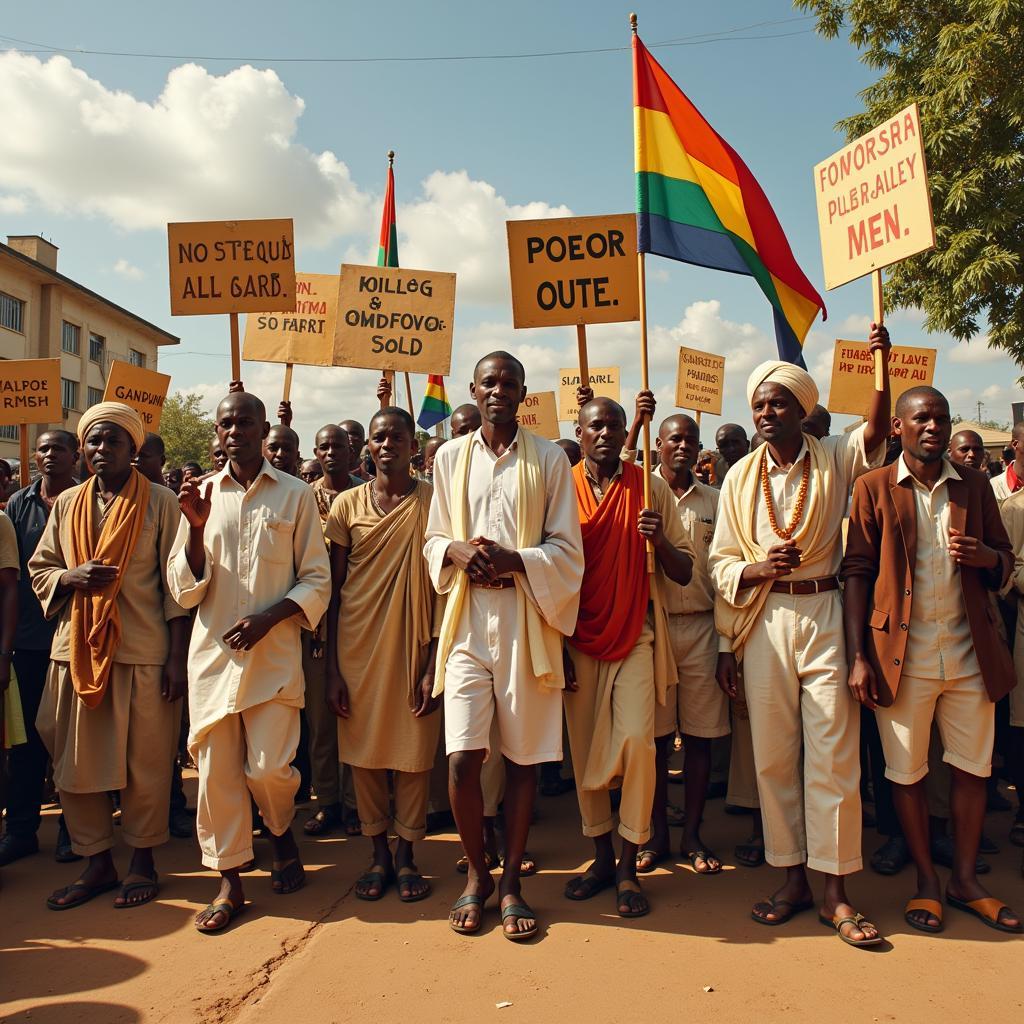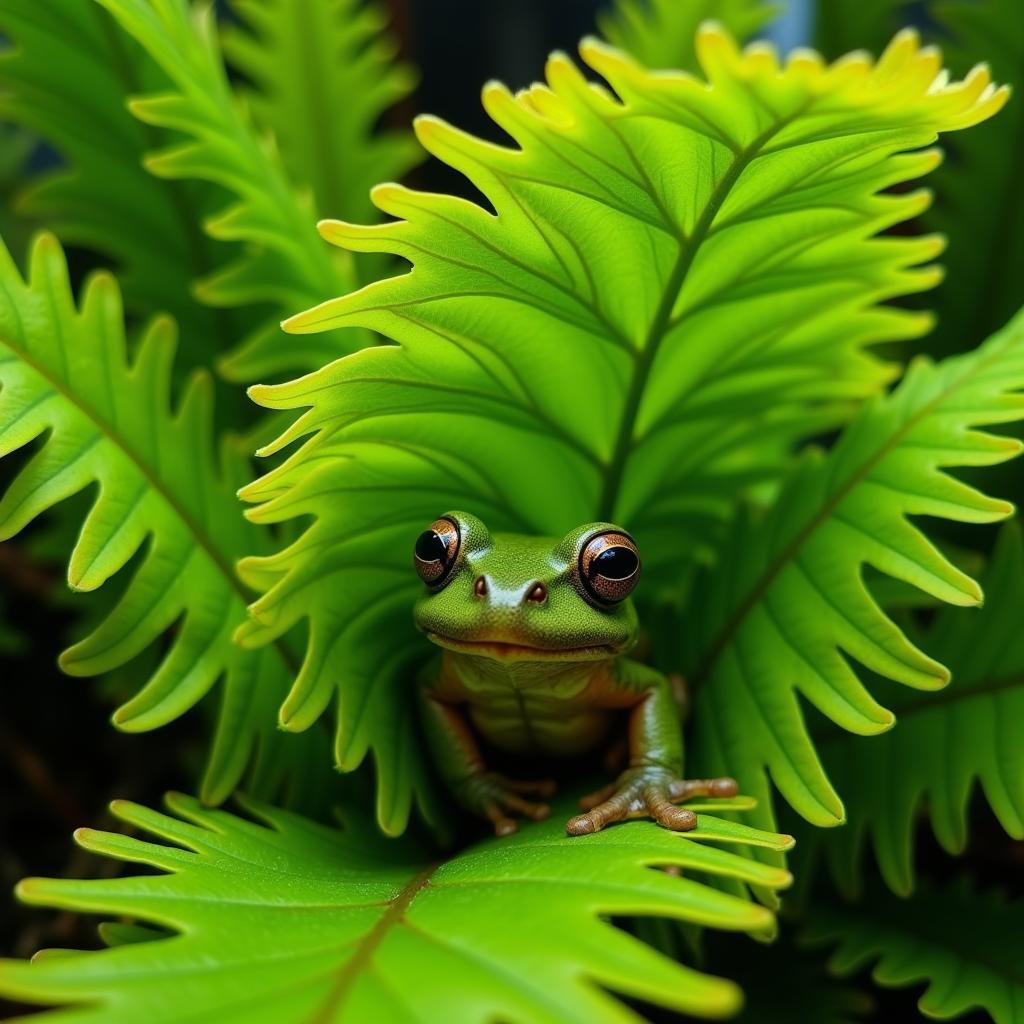African Feminist Writers: Voices of Change and Empowerment
African Feminist Writers have been at the forefront of challenging patriarchal structures and advocating for gender equality across the continent. Their powerful words have sparked conversations, inspired movements, and brought about meaningful change. This article will delve into the lives and work of these impactful writers, exploring their contributions to African literature and society.
A Legacy of Resistance: Pioneers of African Feminism
African feminist writing has a rich and vibrant history, with writers like Flora Nwapa and Buchi Emecheta paving the way for generations to come. These pioneers tackled complex themes of gender roles, marriage, motherhood, and societal expectations, often through the lens of personal experiences.
-
Flora Nwapa (1931-1993), a Nigerian writer, is considered one of the founding mothers of modern African literature. Her novel, Efuru (1966), is a powerful exploration of the lives of women in Igbo society, challenging traditional norms and highlighting the agency of women.
-
Buchi Emecheta (1944-2017), also a Nigerian writer, is known for her impactful novels like The Bride Price (1976) and Second Class Citizen (1974). Emecheta’s work addressed the challenges faced by African women living in both Africa and the West, including poverty, discrimination, and societal pressures.
The Modern Era: Contemporary Voices of African Feminism
The legacy of these pioneers has inspired a new generation of African feminist writers who are pushing boundaries and redefining narratives. These contemporary writers are not only addressing gender inequality but also exploring intersecting identities, such as race, class, and sexuality.
-
Chimamanda Ngozi Adichie (born 1977), a Nigerian author, is recognized globally for her powerful narratives that explore themes of gender, race, and identity. Her works, including Half of a Yellow Sun (2006) and Americanah (2013), have garnered critical acclaim and international readership.
-
Yvonne Adhiambo Owuor (born 1968), a Kenyan writer, has crafted captivating novels like Dust (2003) and The Weight of Silence (2014), which explore the historical and political complexities of African societies through the lens of women’s experiences.
-
Leila Aboulela (born 1964), a Sudanese-Scottish writer, is known for her novels like The Translator (2005) and Mina (2018), which tackle themes of migration, culture, and identity through the voices of strong female characters.
The Power of Words: Impact and Influence
African feminist writers have not only reshaped the literary landscape but also contributed significantly to social change.
-
“They provide a platform for women to speak out against injustice and to advocate for their rights.” – Dr. Amina Mama, Professor of Gender and African Studies
-
“Their work has helped to challenge harmful stereotypes and to promote a more nuanced understanding of African women.” – Professor Olufemi Taiwo, Department of Africana Studies
These writers have empowered women across the continent and beyond, inspiring generations to fight for equality and to envision a more just future. Their impactful narratives continue to resonate with readers worldwide, leaving a lasting legacy of resistance and hope.
Frequently Asked Questions
Q1. What are some of the key themes addressed by African feminist writers?
African feminist writers explore a range of themes related to gender inequality, including:
- Gender roles and expectations
- Marriage and motherhood
- Domestic violence
- Female education and empowerment
- Economic disparities
Q2. What are some of the challenges faced by African feminist writers?
African feminist writers often face challenges related to:
- Censorship and suppression of their work
- Lack of funding and support
- Limited access to education and opportunities
Q3. How can I learn more about African feminist writing?
You can learn more about African feminist writing by:
- Reading their novels, essays, and poetry
- Attending book talks and conferences
- Supporting organizations that promote African feminist literature
Q4. What are some examples of African feminist literature?
Here are some notable examples of African feminist literature:
- Efuru by Flora Nwapa
- Second Class Citizen by Buchi Emecheta
- Half of a Yellow Sun by Chimamanda Ngozi Adichie
- Dust by Yvonne Adhiambo Owuor
- The Translator by Leila Aboulela
Q5. How can I contribute to the work of African feminist writers?
You can contribute to the work of African feminist writers by:
- Buying their books
- Sharing their work with others
- Supporting organizations that promote African feminist literature
Q6. Who are some other notable African feminist writers?
In addition to the writers mentioned above, there are many other notable African feminist writers, including:
- Ama Ata Aidoo (Ghana)
- Tsitsi Dangarembga (Zimbabwe)
- Sindiwe Magona (South Africa)
- Aminata Sow Fall (Senegal)
African feminist writers continue to be essential voices in the fight for gender equality across the continent and beyond. Their powerful narratives offer crucial perspectives on the realities of African women and inspire generations to work toward a more just and equitable future.

